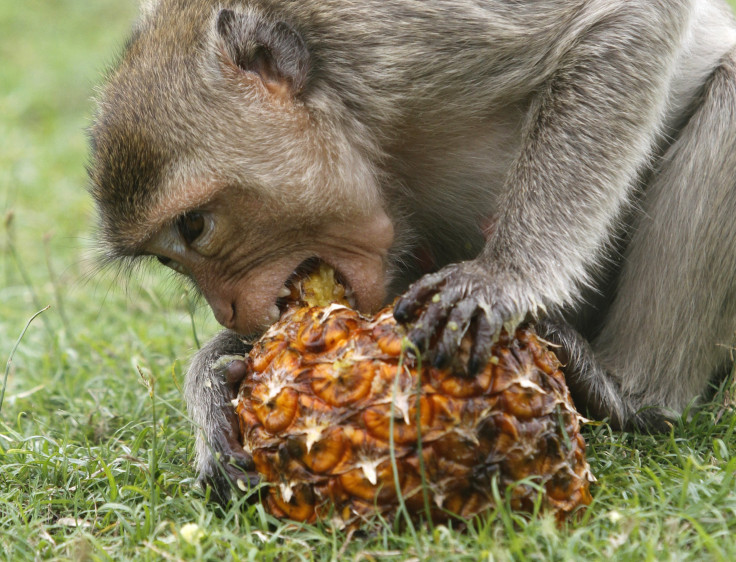Study On Monkeys Suggests Low-Calorie Diet Could Increase Longevity, Reduce Chances Of Age-Related Diseases Among Humans

The results of a longitudinal study, which tested diet and aging in monkeys, shows that consuming calorie-restricted food leads to a significant reduction in mortality and age-related diseases, a discovery that is expected to help scientists develop drugs and other treatments to increase longevity and improve health among humans.
The study, which began at the University of Wisconsin-Madison in 1989, was conducted on 76 rhesus monkeys -- aged between seven years to 14 years -- that were put on a diet reduced in calories by 30 percent. Another group of monkeys, whose diet was not controlled, were nearly three times more at risk of contracting age-related diseases compared to the dieting monkeys, the study found.
“We think our study is important because it means the biology we have seen in lower organisms is germane to primates,” Richard Weindruch, a professor of medicine at the University of Wisconsin and one of the founders of the study, said in a statement. “We continue to believe that mechanisms that combat aging in caloric restriction will offer a lead into drugs or other treatments to slow the onset of disease and death.”
The findings of the latest study seem to contradict the results of a 2012 study, conducted by researchers at the National Institute of Aging, or NIA, on 120 monkeys, which did not report any differences in the survival rate of monkeys that were put on low-calorie diets compared to those that were not. But, according to the scientists who conducted the latest study, the discrepancy may be a result of how animals in the control group were fed in the NIA study.
Previous studies have shown that restricting the intake of calories, while continuing to supply essential nutrients, extends the lifespan of flies, yeast and rodents by as much as 40 percent. Now, according to the new study, primates, including humans, could also benefit from watching the calories.
“The basic biology of caloric restriction in rodents, worms, flies and yeast seems to carry over to primates, so we have a real opportunity to dissect that mechanism, look at how we can work with that basic biology, and benefit all those human primates who are so closely related to our rhesus monkeys,” Weindruch said.
© Copyright IBTimes 2024. All rights reserved.






















